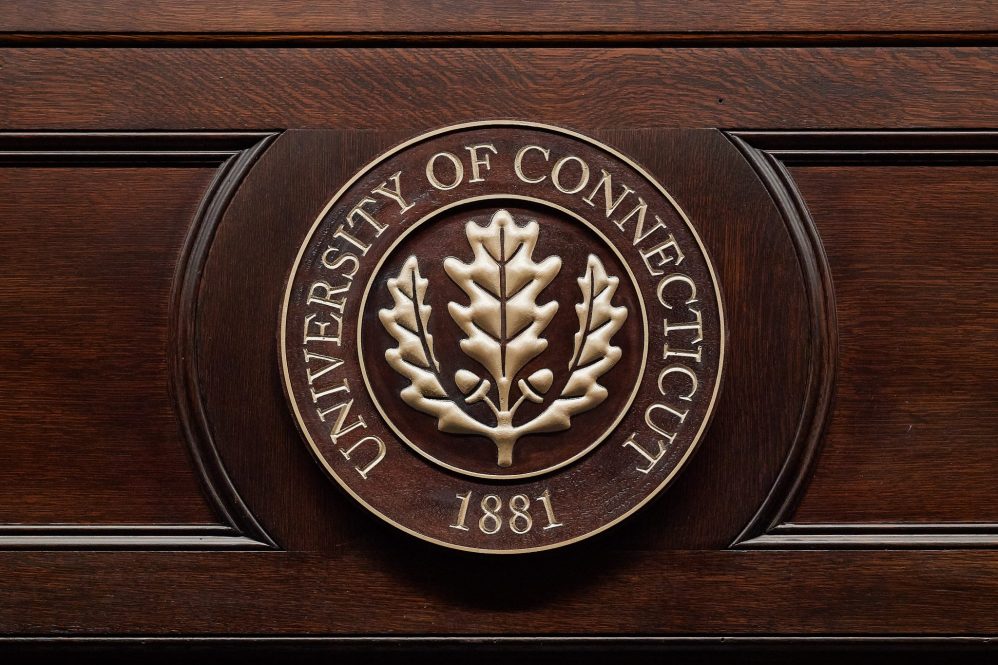UConn is adjusting some of its fee rates to cover the increasing cost of providing specific services, including adding several more mental health clinicians and case managers in response to students’ requests for more access to those services.
The Board of Trustees on Wednesday adopted the plan, which its Financial Affairs Committee unanimously endorsed on Tuesday and which also was presented in detail at two online town hall discussions on Nov. 30 and an in-person session on Dec. 2.
UConn’s guiding principles when setting fees are to protect affordability by increasing them only when absolutely necessary to cover increased costs; to promote simplicity and transparency so the fees can be easily understood; and to use the revenue to help ensure financial stability and quality of the programming it funds.
The FY24 fees were adjusted to account for inflation; increases in specific services such as the mental health programming; and the costs of contractually negotiated salary increases for employees who coordinate and deliver the fee-funded services in each area.
Every student fee category at UConn correlates to specific services funded by that revenue. The changes go into effect with the new fiscal year starting July 1 and do not affect the five-year tuition plan adopted in 2019 for fiscal years 2021-25.
Overall, the FY24 fee changes will equal a $272 increase in mandatory fees for Storrs-based undergraduates and graduate students and a 2.75% increase in Storrs housing and dining rates, equaling about $374 for the most commonly selected meal plans and typical housing options.
Those rates keep the adjustments below inflation while also supporting programming and meeting increased costs that are beyond UConn’s control.
For regional campus students who commute, the total fee increase will be $162. The fee rates differ for regional campus students because they do not have regular access to some of the Storrs-based services, such as on-campus media outlets and Student Union programming.
Included in the total is a $90 increase in the Student Health & Wellness fee, which the University will blend with institutional funding to hire four more mental health counselors and three more case workers, in addition to the six at Storrs and five at the regional campuses who were added in the past few years.
That expansion responds to calls from students and a report by the President’s Task Force on Mental Health, all of which told of a sharp increase in student mental healthcare needs – especially since the pandemic – and the need for more practitioners, including at the regional campuses.
“Since we returned to campus in person, the demand for mental health services to speak with and work with a clinician has increased 30% over previous years, compared with the time prior to the advent of the pandemic,” said Michael Gilbert, UConn’s vice president for student affairs, noting it mirrors a trend nationwide.
“We also have received many expressions of concern and expectations from our student leaders over the past few years in addressing this,” he said, adding they also have fielded concerns from parents, faculty and staff, and others. “This is a phenomenon that is of great and significant concern.”
In addition to the Student Health & Wellness fee change to support more mental health services, other portions of the FY24 adjusted fees will help to cover increased costs for infrastructure and sustainability efforts, technology, and transit services.
An increase is also included in the General University Fee (GUF), which finances extracurricular and co-curricular offerings ranging from the Center for Career Development to athletics tickets, the One Card Office, student organizations, the UConn Marching Band, Fraternity and Sorority Development, and others.
Lloyd Blanchard, UConn’s interim executive vice president for finance and chief financial officer, says changes in each fee category were closely reviewed before being proposed, and that the University increases financial aid to help students meet fee and tuition adjustments.
The fee proposals also were reviewed with leaders of the undergraduate and graduate student governments and were endorsed by the Student Activity and Service Fee Advisory Committee (SASFAC), and questions raised in the town hall sessions are addressed in a Q&A posted online.
Even when accounting for the fee adjustments approved Wednesday, reviews consistently show that UConn offers academic excellence at a significant value for Connecticut residents compared with the amounts they would pay if they attended many competing institutions.
Among a group of 13 schools against which UConn directly competes for applicants who receive enrollment offers, 11 have higher room and board rates: “We remain competitive and we remain at the lower end of the fee structure relative to other universities,” Blanchard said.
A large number of UConn students’ costs are also reduced by financial aid, which the University has increased by $53 million over the past five years and has historically increased it by an average of about 8% annually. About 65% of undergraduates receive some form of gift aid they do not have to repay.
More details on changes to specific fees are delineated in the agenda item and presentation made this week to trustees and their financial affairs committee. Separate fee and tuition rates also apply for students in UConn’s medical and dental programs.
Other updates adopted Wednesday include increases to some academic program fees, which are paid by students in specific programs to cover the costs of those programs, including in the School of Business and the School of Law.



